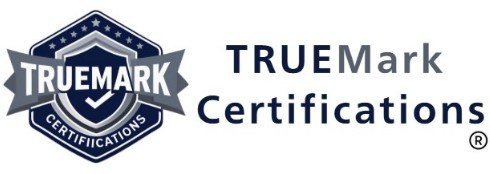QMS provides reliable and efficient system certification services, ensuring that your organization's management systems comply with globally recognized standards. These certifications demonstrate your commitment to quality, safety, sustainability, and operational excellence.
Key Management System Certifications
ISO 9001 – Quality Management System (QMS)
- Ensures consistent quality in products and services.
- Helps improve operational efficiency and customer satisfaction.
ISO 14001 – Environmental Management System (EMS)
- Helps manage environmental responsibilities.
- Promotes sustainable practices and compliance with environmental laws.
ISO 45001 – Occupational Health & Safety Management System (OH&SMS)
- Protects employees by minimizing workplace hazards.
- Demonstrates a commitment to occupational health and safety.
ISO 27001 – Information Security Management System (ISMS)
- Safeguards sensitive data against breaches and cyber threats.
- Helps build trust with clients and stakeholders.
ISO 22000 – Food Safety Management System (FSMS)
- Ensures food safety throughout the supply chain.
- Combines ISO standards with HACCP principles for comprehensive control.
ISO 13485 – Medical Device Quality Management System
- Focuses on quality and safety in the design and manufacture of medical devices.
ISO 50001 – Energy Management System
- Helps organizations improve energy efficiency and reduce costs.
- Promotes sustainable energy management practices.
Integrated Management Systems (IMS)
- Combines multiple ISO certifications into a streamlined system.
- Reduces duplication of processes, saving time and resources.
System Certification Process
Phase 1: Understanding Requirements
- Client Consultation: Assess the client’s industry, scope, and certification needs.
- Gap Analysis: Compare current systems against standard requirements.
Phase 2: System Documentation Review
- Evaluate existing documentation, including policies, procedures, and records.
- Recommend updates to align with the certification standard.
Phase 3: Certification Audit
Stage 1 – Initial Assessment
- Understand the client’s management system and evaluate its readiness.
- Highlight gaps or areas requiring improvement.
Stage 2 – Certification Audit
- Conduct an in-depth evaluation of processes, compliance, and effectiveness.
- Audit includes employee interviews, process monitoring, and sampling.
- Prepare a detailed audit report with findings.
Phase 4: Corrective Action Implementation
- Address identified non-conformities.
- Submit evidence of corrective actions for review.
Phase 5: Certification Approval
- The audit team reviews submitted evidence and validates compliance.
- Certification is awarded upon successful completion.
Phase 6: Ongoing Surveillance
- Periodic surveillance audits to maintain certification validity.
- Continuous improvement recommendations for enhanced performance.
Phase 7: Re-Certification
- Conduct a full audit at the end of the certification cycle (typically every 3 years).
- Renew the certification based on compliance and improvements.
Benefits of System Certification with QMS
- Enhanced credibility and market reputation.
- Improved operational efficiency and reduced risks.
- Compliance with legal and regulatory requirements.
- Increased customer trust and satisfaction.
- Access to global markets and tender opportunities.
